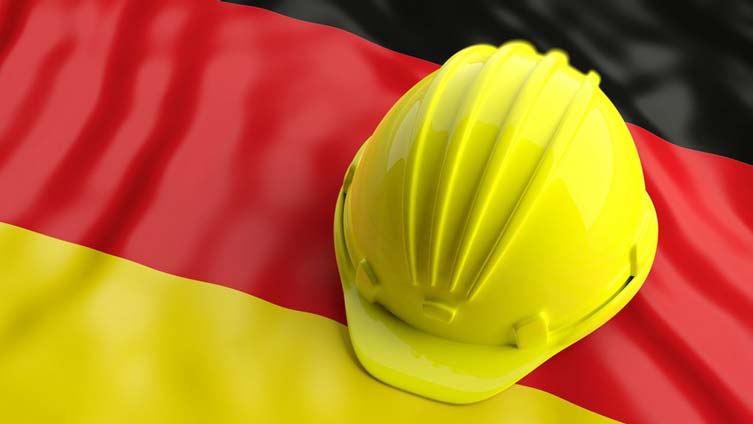How do you find a job after removals to Germany? What are the popular industries and what are the requirements for potential employees?

Finding a job in Germany requires some preparation and an understanding of the labour market there.
Looking for work in Germany after a move
Deciding on an industry
Germany has strong industrial sectors, including automotive, engineering, chemistry, information technology, medicine and renewable energy. The choice of industry depends on your skills and experience.
Language
Many employers expect fluency in German, although English is often sufficient in multinational corporations. It is worth investing in language courses or language certificates.
CV and covering letter
A German CV (known as a ‘Lebenslauf’) is a little different to many other countries. It usually includes a photo and the information is presented in chronological order. The cover letter (“Anschreiben”) should be short and specific.
Job search
Websites such as Indeed, StepStone or Monster.de are popular in Germany. You can also use recruitment agencies that specialise in your sector.
Recognition of qualifications
If you have an education or professional qualification obtained outside Germany, you may be required to obtain recognition. Information on this can be found on the ‘Recognition in Germany’ page.
Visas and work permits
Citizens of EU countries have the right to work in Germany without obtaining a visa. If you are not an EU citizen, you may need a visa and a work permit.
Integration and adaptation
The German working environment has its own specific cultural characteristics, such as punctuality, formality and precision in communication. It is worth familiarising yourself with these in order to better understand your future colleagues and superiors.
Networking
Building relationships with people in your industry can help you find a job. You can join local professional groups or industry organisations.
Preparing for an interview
German job interviews are usually formal and thorough. Employers may ask for specific details about your experience and qualifications.
Work culture in Germany
Hierarchy
In German companies, the hierarchy is often clearly defined. Bosses make decisions, but employees are also encouraged to express their own opinions.
Working hours
Germany has a relatively short working week compared to other countries, typically 35-40 hours. Germans are also known for their efficiency and focus on quality rather than quantity of work.
Holidays
Germans place a high value on work-life balance. Employers are expected to provide employees with at least 20 holiday days per year, although many companies offer more.
Networking:
Professional chambers
Germany has many professional chambers that organise events and seminars for their members. It is worth joining them if you work in a relevant industry.
Professional associations
These are organisations that bring together professionals from specific industries. They enable you to exchange information, network and participate in specialised training.
Popular sectors in Germany
Automotive
* Representatives: Volkswagen, BMW, Mercedes-Benz.
* Requirements: Technical education, experience in engineering, knowledge of foreign languages, especially English and German.
Information technology (IT)
* Representatives: SAP, Siemens, Deutsche Telekom.
* Requirements: Programming skills, certifications, experience in areas of specialisation, English language skills.
Engineering and manufacturing
* Representatives: Siemens, BASF, Bayer.
* Requirements: Engineering education, experience in design, knowledge of standards and regulations.
Medicine and healthcare
* Representatives: Fresenius, Bayer, Boehringer Ingelheim.
* Requirements: Permission to practice, certificates, German language skills, empathy and soft skills.
Renewable energy (RES)
* Representatives: E.ON, RWE, Siemens Gamesa.
* Requirements: Education in energy, understanding of renewable technologies, knowledge of environmental regulations.
Documents needed when looking for a job in Germany
* CV: Should include a detailed description of your education and work experience, language skills and other specialised skills.
* Cover letter: should be personalised for the specific role and company, explaining why you are the right person for the job.
Recruitment process
* Online: Some companies may require you to test your technical or general skills online.
* Interviews: Can be single or multi-stage, often starting with a telephone interview followed by a face-to-face meeting.
* Assessment Centres: Large companies may organise assessment centres where candidates are tested for a full day or more.
Networking and job fairs
* LinkedIn: Active use of LinkedIn can help you make professional contacts.
* Job fairs: There are numerous job fairs in Germany where you can meet potential employers.
Websites for finding a job in Germany
* Bundesagentur für Arbeit (Federal Employment Agency).
This is the main website of the German employment agency. Job vacancies are regularly updated and the site contains lots of useful information for jobseekers.
* Make it in Germany
A government site aimed at international professionals with information about living and working in Germany.
Legal issues and regulations
* Taxes: Make sure you understand the German tax system.
* Health insurance: you need to be insured when you work in Germany. You can choose between private or public insurance.
* Housing: Finding accommodation can be a challenge, especially in big cities, so it’s worth starting your search early.
Practical advice before working in Germany
* Learn the language
Even if you are working in an international environment, a basic knowledge of German is extremely important for everyday life in Germany.
* Be open-minded about the culture
Germany has a rich culture and traditions. An openness to new experiences and a willingness to understand the culture will help you integrate and establish a relationship with Germans.
Finding a job in Germany
Understanding these aspects can make the process of finding a job in Germany much easier. Preparation, patience and determination are the keys to success.
Working in Germany after removals
Finding a job after moving to Germany, as in any other country, requires patience, preparation and the ability to adapt to a new environment. However, with the right attitude and determination you can succeed in this country. Good luck!
